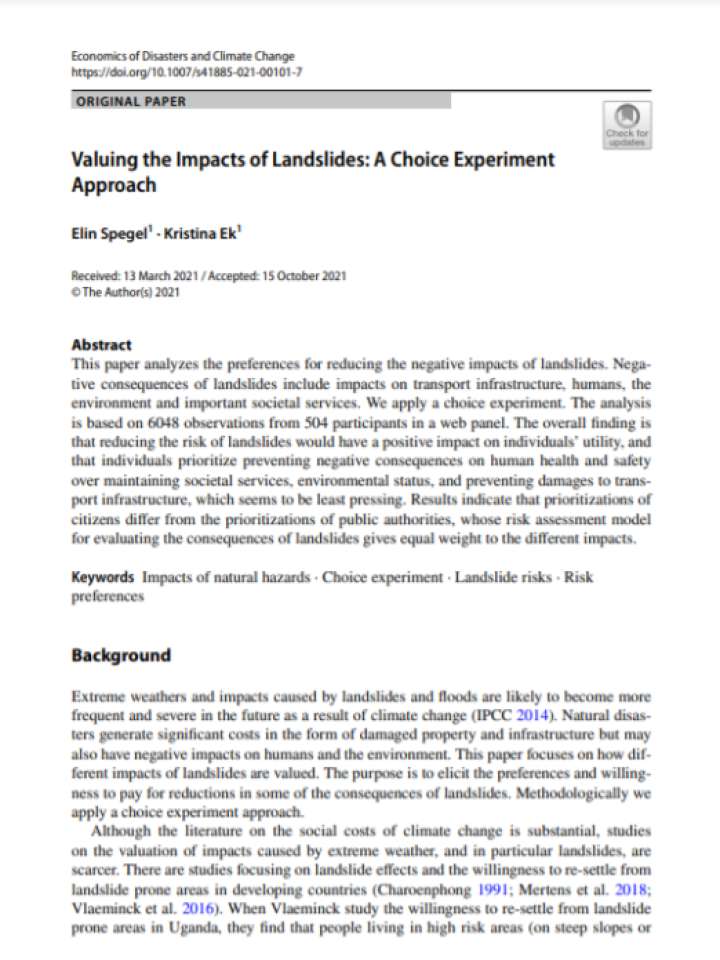Valuing the impacts of landslides: A choice experiment approach
This paper analyzes the preferences for reducing the negative impacts of landslides. Negative consequences of landslides include impacts on transport infrastructure, humans, the environment and important societal services. Natural disasters generate significant costs in the form of damaged property and infrastructure but may also have negative impacts on humans and the environment. This paper focuses on how different impacts of landslides are valued. The purpose is to elicit the preferences and willingness to pay for reductions in some of the consequences of landslides. The paper applies a choice experiment approach methodology based on 6048 observations from 504 participants in a web panel.
The paper finds that reducing the risk of landslides would have a positive impact on individuals’ utility; responses indicate that respondents are willing to pay an additional annual fee to reduce the consequences of landslides. Participants prioritize preventing negative impacts on humans over maintaining important societal services and environmental status. The differences between how different impacts are valued suggest that there are differences between the relative valuations of impacts expressed by the citizens and in the model for risk assessment applied by the national authority. The valuation of different impacts from natural disasters is however highly case dependent, policymakers need to make decisions in an uncertain world with scarce resources and to make a case study for each and every decision would be very time consuming and costly.
Explore further
